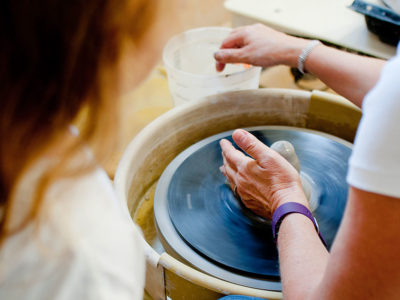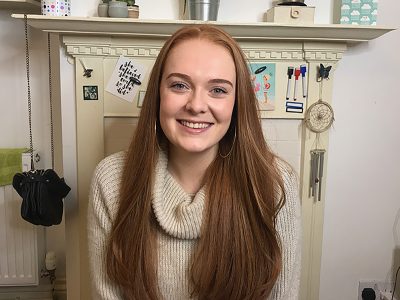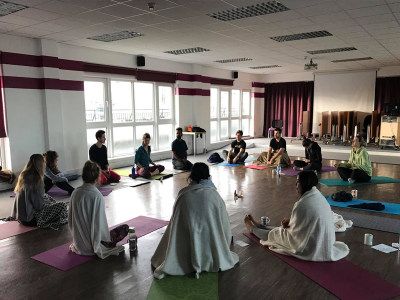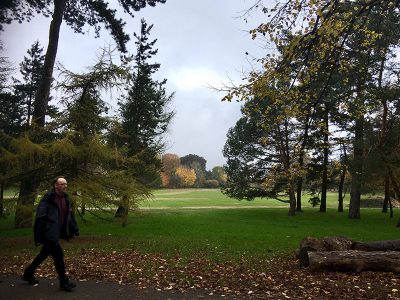Forest bathing and wellness with Wtow
Woodland therapy sessions include activities that many have heard of like mindfulness and yoga – but what about forest bathing?
According to The National Trust, forest bathing – known as shinrin yoku – was developed in Japan in the 1980s following studies which showed that two hours of mindful practice in a forest could reduce blood pressure, lower the stress chemical cortisol and improve concentration and memory.
It is practised by spending time in woodland, taking care to notice your surroundings and using all your senses to connect with the natural world around you.
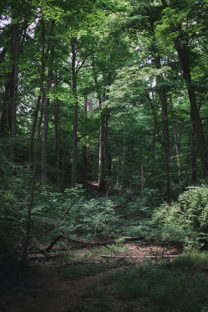
A potential setting for forest bathing. Photo by Alex Grodkiewicz on Unsplash
Forest bathing forms a core part of woodland therapy sessions with Welcome To Our Woods, but there is also a range of other activities and groups that take place throughout the year.
On Wednesday mornings Wtow runs a Social Strollers session. There is also armchair aerobics classes, walking rugby, active gardening and growing plants for health and wellbeing sessions.
To find out more about Wtow’s work, please visit their website, Facebook page or drop in at their Treherbert location, at the old library site on Bute Street.
As National Stress Awareness Day approaches, a woodland therapy group is running free health and wellbeing activities
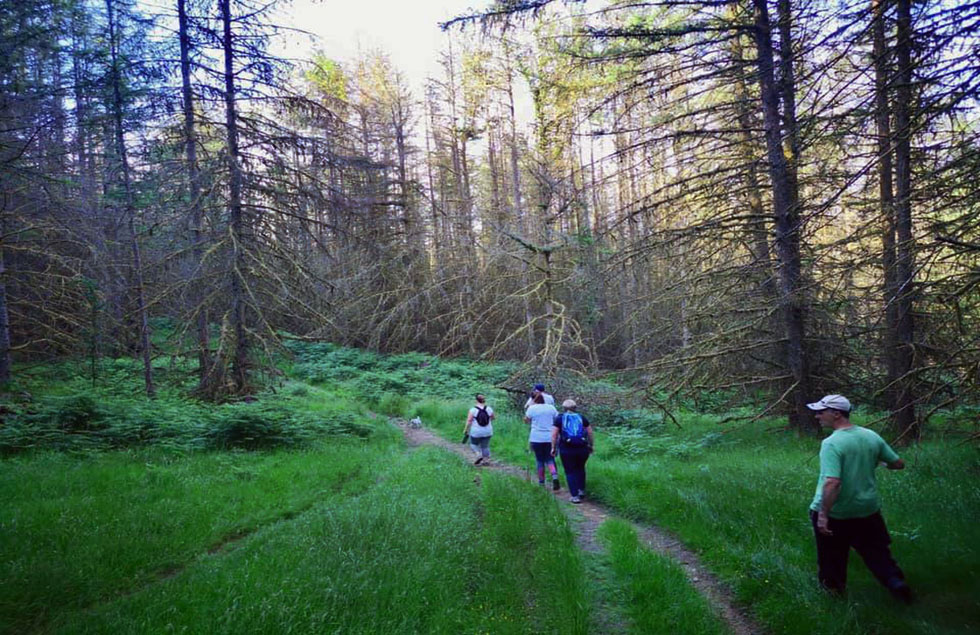
Woodland therapy by a Treherbert community wellbeing group starts a new six-week course of sessions at the beginning of November.
The sessions, run by Welcome To Our Woods (Wtow), take place every Thursday and offer participants a range of activities to help improve health and wellbeing.
The sessions coincide with National Stress Awareness Day on 6 November, which highlights the challenges many people face with managing stress.
A study by the Mental Health Foundation showed that during 2018, 74% of people were so stressed they felt overwhelmed and unable to cope. Wtow’s woodland therapy sessions were created to help combat this problem.
Ian Thomas, programme manager for Wtow, said the therapy sessions include activities such as mindfulness, yoga, forest bathing and woodworking. Sessions may also include storytelling, whittling, foraging, making food, crafts and breathing exercises.
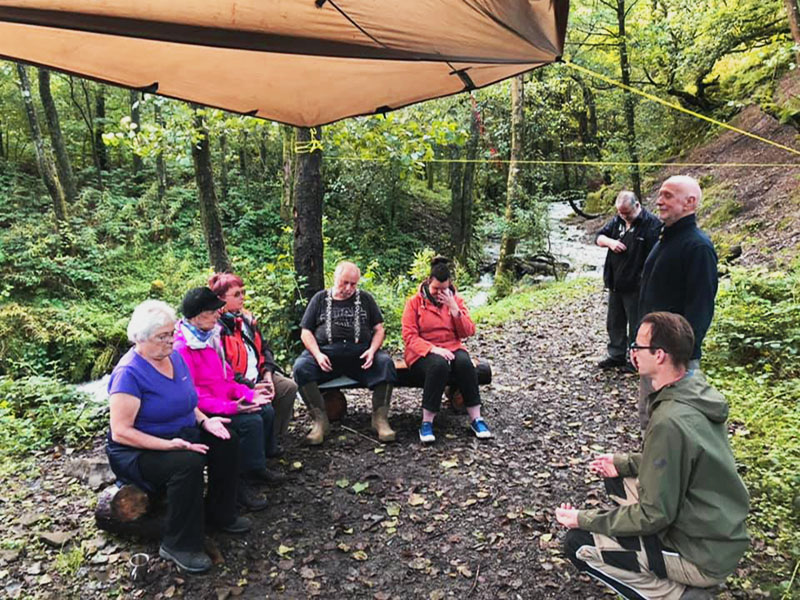
The sessions aim to support people with their mental and physical health by helping them connect with nature and their landscape.
“We believe having a connection to the landscape is part of health and wellbeing,” said Ian.
He added that building links to the landscape is an essential part of healing and wellness.
“The Welsh concept of your square mile may not be a mile, it might be 20 miles or 100 miles, but this is where you are connected to, this is your place and that’s such an important part of health and wellbeing, where you can experience how you fit into your landscape,” said Ian.
The woodland therapy sessions are free of charge and run each Thursday from 11am to 1pm. They are open to anyone who wants to connect with nature and improve their wellbeing.
People interested in participating in therapy sessions can register their interest via Wtow’s Facebook page, and sessions can be joined in any week of the six-week course.
Forest bathing and wellness with Wtow
Woodland therapy sessions include activities that many have heard of like mindfulness and yoga – but what about forest bathing?
According to The National Trust, forest bathing – known as shinrin yoku – was developed in Japan in the 1980s following studies which showed that two hours of mindful practice in a forest could reduce blood pressure, lower the stress chemical cortisol and improve concentration and memory.
It is practised by spending time in woodland, taking care to notice your surroundings and using all your senses to connect with the natural world around you.

A potential setting for forest bathing. Photo by Alex Grodkiewicz on Unsplash
Forest bathing forms a core part of woodland therapy sessions with Welcome To Our Woods, but there is also a range of other activities and groups that take place throughout the year.
On Wednesday mornings Wtow runs a Social Strollers session. There is also armchair aerobics classes, walking rugby, active gardening and growing plants for health and wellbeing sessions.
To find out more about Wtow’s work, please visit their website, Facebook page or drop in at their Treherbert location, at the old library site on Bute Street.

